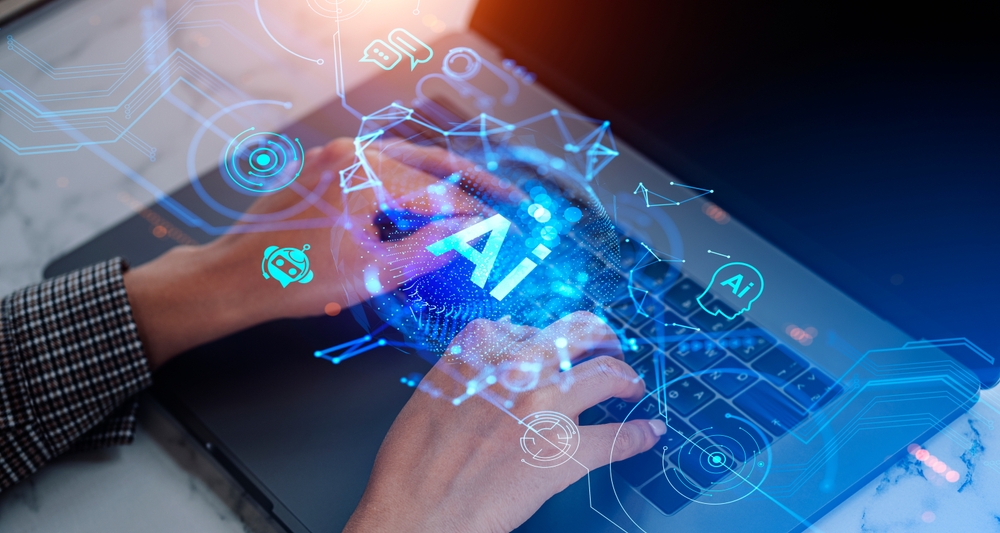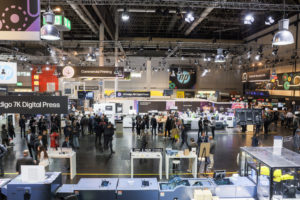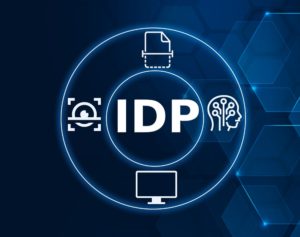HP has unveiled its next generation of AI-enabled laptops, powered by Intel’s newest Core Ultra series processor. This heralds a new era of on-device AI thanks to the new generation of processors with built-in neural processing units (NPUs). NPUs are specialised hardware chips designed to accelerate AI workloads, enabling faster and more efficient on-device processing which is designed to manage AI workloads more efficiently.
The arrival of AI-powered PCs and laptops marks a crucial turning point in the evolution of artificial intelligence. These devices overcome limitations in processing power that previously restricted the complexity and scale of AI models. Large language models (LLMs) like GPT-3 require significant energy and computational resources during their training, often involving multiple core processors due to limited memory.
Chip vendors bringing embedded AI to all
Intel has launched the Core Ultra processor, representing the company’s largest architectural shift in 40 years and providing the AI PC generation with innovation on all fronts: CPU compute, graphics, power, battery life and new AI features.
Intel’s Core Ultra CPU adds over 300 AI-accelerated features for ISVs to use, including real-time language translation, enhanced gaming, and predictive capabilities via inferencing. The Core Ultra chips have built-in GPUs and neural processing units (NPUs), with tasks split to make the most of the different capabilities of these three systems. By creating such a comprehensive hybrid unit, Intel is moving away from software-driven AI to embedded capabilities that do not need a connection to a broader network.
Similarly, AMD has created a range of Ryzen AI chips using the same three-unit approach of CPU, GPU and NPU.
Intel has signed up over 100 ISVs as launch partners for its Core Ultra CPUs – with the idea that these ISVs can run much of what they need locally on the PC or laptop itself, rather than depending on their own AI engines in the cloud.
AMD has over 50 laptop designs from different hardware vendors on the market, powered by these Ryzen AI chips. It is also currently running its AMD Pervasive AI Developer Contest, a competition for developers creating solutions in the vision, speech, or optimised large language module (LLM) spaces.
It is apparent that Intel and AMD are fighting to be the leader in AI at the PC/laptop device level – as well as in the datacentre.
On-device AI benefits
AI-powered laptops offer a range of benefits. For example, a laptop or PC’s security can be comprehensively checked against a corporate policy before it connects to the corporate network, with the policy sent as a pre-boot instruction. Once connected to the network, the AI capabilities built into the system can help recognise and mitigate threats from zero-day, phishing, and other attacks. Data can be better secured on the device itself, and AI can apply greater security to data on the move.
This leads to other benefits for PC and laptop users:
- Such integration results in much greater power efficiencies, leading to longer usage on a single battery charge.
- Better pipelining of commands enables smoother operation of high-demand applications, such as media manipulation and gaming.
- Personal productivity is enhanced through transcription of written or spoken text, precising of reports and web pages, creation of content through the use of generative AI, and so on.
Widespread AI becomes key to the user experience
AI tools becoming more widespread has led to Microsoft building OpenAI into its Copilot assistant and Google building its Bard AI system into its search tools, web browser, and productivity suite. These significant developments mean the capability to offload work to the individual’s hardware is becoming a major aspect of the expected user experience. It is likely to drive user demand for Ultra Core and AMD Ryzen AI-powered devices.
Both Intel and AMD want to revitalise the PC and laptop market, which has been declining for some time. They hope user and corporate demand for AI will drive the market for devices with built-in AI capabilities. However, AI is a rapidly developing environment, and how well such early-stage hardware-based systems will be able to support changes in AI approaches in the coming years remains to be seen.
HP fills the gap with AI-enabled devices
HP has launched a range of new laptops powered by Intel Core Ultra CPUs. The Spectre x360 laptop comes in two basic sizes – a 13- and a 16-inch model. HP has built-in AI adaptations that make the laptop a more powerful collaborative system for users, through the addition of:
- Location-aware security: via an HP-specific AI chip, the Spectre x360 builds on HP’s existing ‘walk away lock’, which automatically locks the laptop when the user is not present. It then automatically unlocks and wakes up when the user returns.
- AI-enabled video: the 9MP camera uses AI to enhance low-light environments, presenting a professional look during video calls.
- System optimisations: performance is automatically optimised based on the number and types of applications open, where the laptop is positioned, and the level of battery charge. Additionally, screen refresh rates are adapted to enhance battery life, as well as the screen dimming when the user looks away from the device.
According to HP, the AI capabilities of the Core Ultra CPU result in up to 13% lower power drain when using Microsoft Teams and Windows Studio effects, up to 65% faster generative AI workload, and up to 132% faster video editing when using AI-enabled enhancements.
Also included is Superpower, an AI assistant that runs locally thanks to the powerful NPU, rather than sending data to the cloud.
As well as the Spectre x360, HP is refreshing some of its other consumer platforms with Intel Core Ultra-powered client devices, including a range of All-In-One devices (due out in February 2024), the Pavilion Plus (April 2024), and further laptops.
Quocirca opinion
With the relentless surge of AI, we can expect to see a wave of upgrades driven by AI-powered laptops and PCs. This could significantly revitalise the PC market, potentially within the next 12-24 months. To navigate this seismic shift, both processor and PC/laptop vendors must act proactively and forge a robust ecosystem of developers and independent software vendors (ISVs). This collaborative effort will be crucial in crafting compelling applications that unlock the true potential of AI for everyday users.
Shifting the focus away from the hype of AI into seeing it as a strategic asset with tangible business benefits must be a key priority. Technology vendors must guarantee the longevity of their offerings. Rapid obsolescence could erode user confidence and also stifle the nascent AI-powered PC ecosystem.





